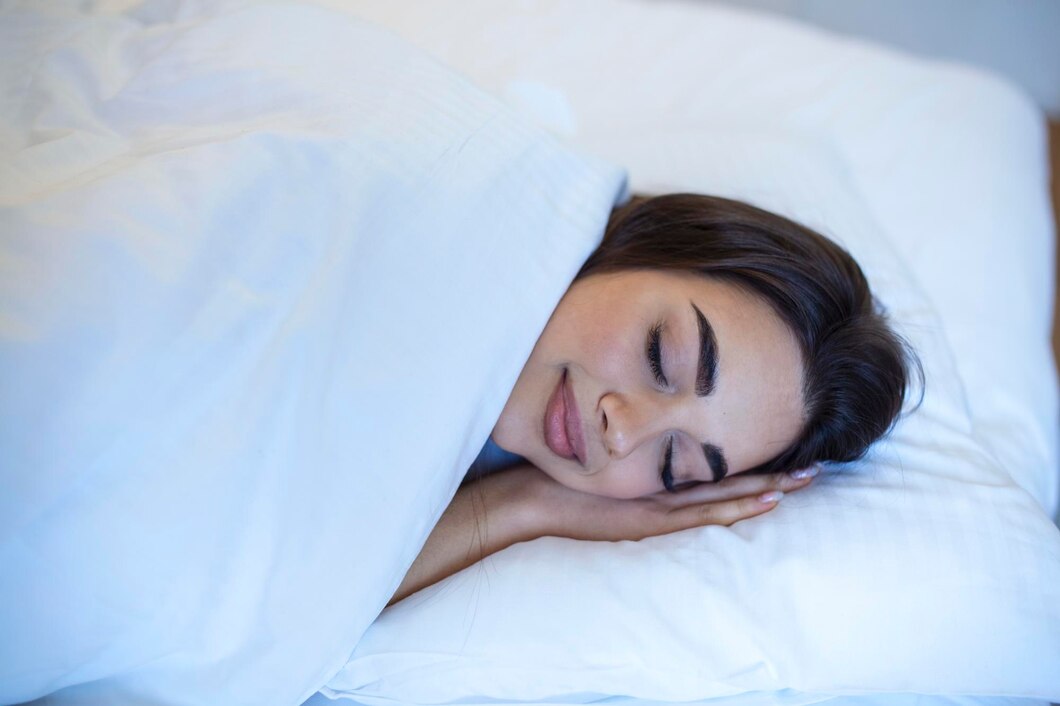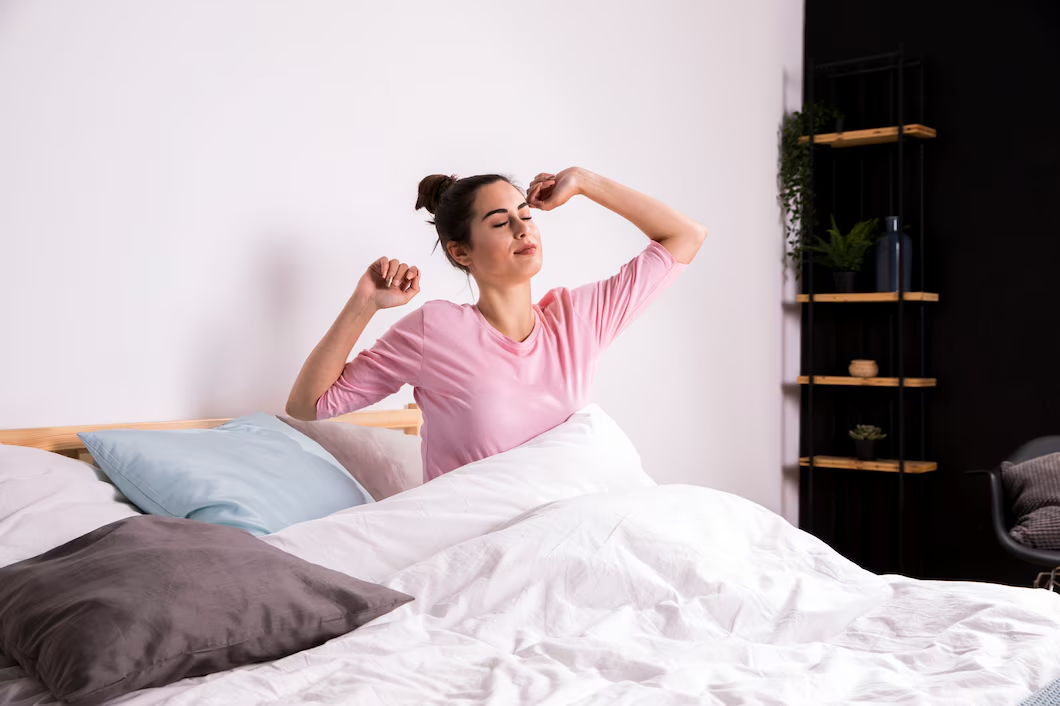How to Reduce Insomnia Naturally
In the UK, insomnia affects millions of people who find it challenging to get to sleep or to stay asleep. This results in fatigue, stress, and different health issues. Some use medication, but many turn to natural methods to promote sleep. They don’t want the side effects of sleeping pills. Sweet dreams await! You can unlock better sleep the

In the UK, insomnia affects millions of people who find it challenging to get to sleep or to stay asleep. This results in fatigue, stress, and different health issues. Some use medication, but many turn to natural methods to promote sleep. They don’t want the side effects of sleeping pills.
Sweet dreams await! You can unlock better sleep the natural way. By tweaking your daily habits, enhancing your sleep hygiene, and mastering stress, restful nights are within reach. This guide offers steadfast strategies to combat insomnia without the crutch of medication. Whether you’re battling occasional troubles or chronic challenges, we’ve got you covered.
Understanding Insomnia and Its Causes

Insomnia means trouble falling or staying asleep. This leads to bad sleep quality and feeling tired during the day. It can be acute (short-term) or chronic (lasting for months). Understanding its causes is the first step toward practical solutions.
Common Causes of Insomnia
- Stress & Anxiety – High-stress levels overstimulate the nervous system, making relaxation difficult.
- Poor Sleep Habits – Irregular sleep schedules and screen time before bed disrupt sleep. Inconsistent bedtime routines also make it harder to get good rest.
- Diet & Stimulants – Drinking caffeine, nicotine, or alcohol before bed hurts sleep quality.
- Lack of Physical Activity – A sedentary lifestyle leads to restlessness at night.
- Hormonal Changes – Pregnancy, menopause, or hormonal imbalances can disrupt sleep patterns.
- Medical Conditions – Chronic pain, sleep apnea, or other medical issues can make restful sleep difficult.
- Overstimulation Before Bed – Watching thrilling shows or doing intense tasks can make it hard to fall asleep.
How to Naturally Overcome Insomnia
1. Establish a Consistent Sleep Routine
Creating a structured bedtime routine can significantly improve sleep quality.
- Set a fixed bedtime and wake-up time, even on weekends.
- Develop a relaxing pre-bed routine, such as reading or meditation.
- Avoid long naps (keep them under 30 minutes) to maintain a proper sleep cycle.
- Dim evening lighting signals to your body that it’s time to wind down.
- Reserve your bed for sleep only to create a strong mental association.
Pro Tip: Stick to a consistent bedtime schedule to train your body’s internal clock.
2. Create a Sleep-Friendly Environment
Your sleep environment plays a crucial role in overcoming insomnia.
- Keep the bedroom cool (16-18°C), dark, and quiet.
- Invest in a high-quality mattress and supportive pillows.
- Remove electronics to minimise blue light exposure.
- Use blackout curtains or an eye mask to block light.
- Try aromatherapy with essential oils like lavender or chamomile for relaxation.
- Keep your bedroom clutter-free to promote a calming atmosphere.
Pro Tip: Use a white noise machine or soothing sounds to block disruptive noises.
3. Improve Your Diet for Better Sleep
What you eat directly impacts your sleep quality.
- Avoid caffeine, nicotine, and alcohol at least 4-6 hours before bedtime.
- To relax muscles, consume magnesium-rich foods like leafy greens, nuts, and seeds.
- Try herbal teas like chamomile, valerian root, or lemon balm. They help you relax.
- Avoid heavy or spicy meals before bed to prevent discomfort.
- Add foods rich in tryptophan, like turkey, bananas, and dairy. They help boost melatonin production.
Pro Tip: Have a light snack with protein and healthy carbs before bed to stabilise blood sugar levels.
4. Use Relaxation Techniques Before Bed
Stress and sleep are linked, so relaxation techniques can help improve sleep.
- Meditation & Mindfulness – Helps calm the mind and reduce overthinking.
- Deep Breathing Exercises – The 4-7-8 technique slows heart rate and induces relaxation.
- Progressive Muscle Relaxation (PMR) – Tensing and relaxing muscle groups can ease physical tension.
- Guided Imagery – Visualizing peaceful scenes can shift focus from stress.
- Acupressure – Applying gentle pressure to specific points on the body promotes relaxation.
Pro Tip: Practice guided meditation before bed to clear your mind of racing thoughts.
5. Increase Physical Activity
Regular movement improves sleep by reducing stress and regulating energy levels.
- Strive for at least 30 minutes of moderate movement most days—think walking, cycling, or swimming.
- Steer clear of high-intensity workouts within two hours of your bedtime.
- Unwind with yoga or tai chi in the evening to boost relaxation.
- Bask in sunlight during the day to fine-tune your sleep-wake rhythm.
Pro Tip: Morning rays can recalibrate your internal clock for restful slumber.
6. Cut Back on Screen Time and Blue Light Exposure
Artificial blue light plays a villain in the sleep saga, throwing off melatonin’s schedule and delaying your descent into dreamland.
- Power down those screens at least 60 minutes before hitting the hay.
- If screens are necessary, slip on blue light filters for a softer glow.
- Dive into screen-free delights like reading, journaling, or letting soothing music wash over you.
- Banish televisions and glaring LED lights from your sanctuary of slumber.
Pro Tip: Slip on amber-tinted glasses in the evening to dim blue light’s impact.
7. Tame Stress to Transform Sleep
Since anxiety is a leading cause of insomnia, stress management is essential.
- Practice journaling to process emotions and reduce nighttime overthinking.
- Try cognitive behavioural therapy (CBT-I) if anxiety-related insomnia persists.
- Engage in creative hobbies like painting or playing music to relieve stress.
- Establish a relaxing evening routine with warm baths, calming scents, and quiet activities.
Pro Tip: Try a gratitude journal to shift focus from stress to positive thoughts before sleep.
8. Try Natural Sleep Aids
Some natural supplements can promote sleep without the side effects of medication.
- Melatonin Supplements – Your nighttime ally, easing jet lag and shift work sleep.
- Magnesium – The muscle relaxer that unveils serenity while nurturing your nervous system.
- Valerian Root – Nature’s tranquilliser, delivering calm and bidding anxiety farewell.
- CBD Oil – A soothing breeze for those seeking stress relief and better sleep.
- Passionflower & Lemon Balm – Botanical companions renowned for their gentle, calming embrace.
Pro Tip: Consult a healthcare provider before starting any new supplement.
Frequently Asked Questions (FAQs)

How long does it take for natural remedies to improve sleep?
Natural sleep remedies may take a few days to a few weeks to show results. Consistency is key for long-term improvement.
Can I replace sleeping pills with natural remedies?
Yes, many people successfully transition from sleep medication to natural methods. However, consult a doctor before stopping prescribed medication.
How many hours of sleep should I aim for?
Adults should aim for 7-9 hours of quality sleep per night.
What should I do if I wake up in the middle of the night?
Try deep breathing, meditation, or a calming activity like reading. Avoid checking your phone or watching TV.
Reduce Insomnia for a Good Night

To conquer insomnia naturally, embrace proper sleep hygiene and tackle stress head-on. Make lifestyle tweaks that lull you into a blissful slumber sans medication. Start with small changes, stay committed, and enjoy the benefits of refreshing sleep!